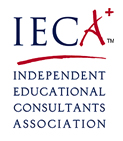We read an article by Bruce Feiler in the New York Times, “The Stories that Bind Us.” We quote here from that article:
“Decades of research have shown that most happy families communicate effectively. But talking doesn’t mean simply “talking through problems,” as important as that is. Talking also means telling a positive story about yourselves. When faced with a challenge, happy families, like happy people, just add a new chapter to their life story that shows them overcoming the hardship. This skill is particularly important for children, whose identity tends to get locked in during adolescence.
“The bottom line: if you want a healthier family, create, refine and retell the story of your family’s positive moments and your ability to bounce back from the difficult ones. That act alone may increase the odds that you family will thrive for many generations to come.”
When we were children, we were told never to tell a story. ‘Telling a story’ was a phrase that meant telling a lie or failing to tell the truth.
Now we mean something very different by that phrase, and we say with many others: Do tell your story. Make it a family practice, a tradition. Telling your stories makes meaning and strengthens family bonds.
And as Bruce Feiler believes: the single most important thing you can do for your family may be the simplest of all—develop a strong family narrative.
Tell your stories. It is a healthy thing to do—not only for families but also for organizations, businesses, churches, teams of people. It connects you to yourself and it bonds you with others.
John and Jesse



